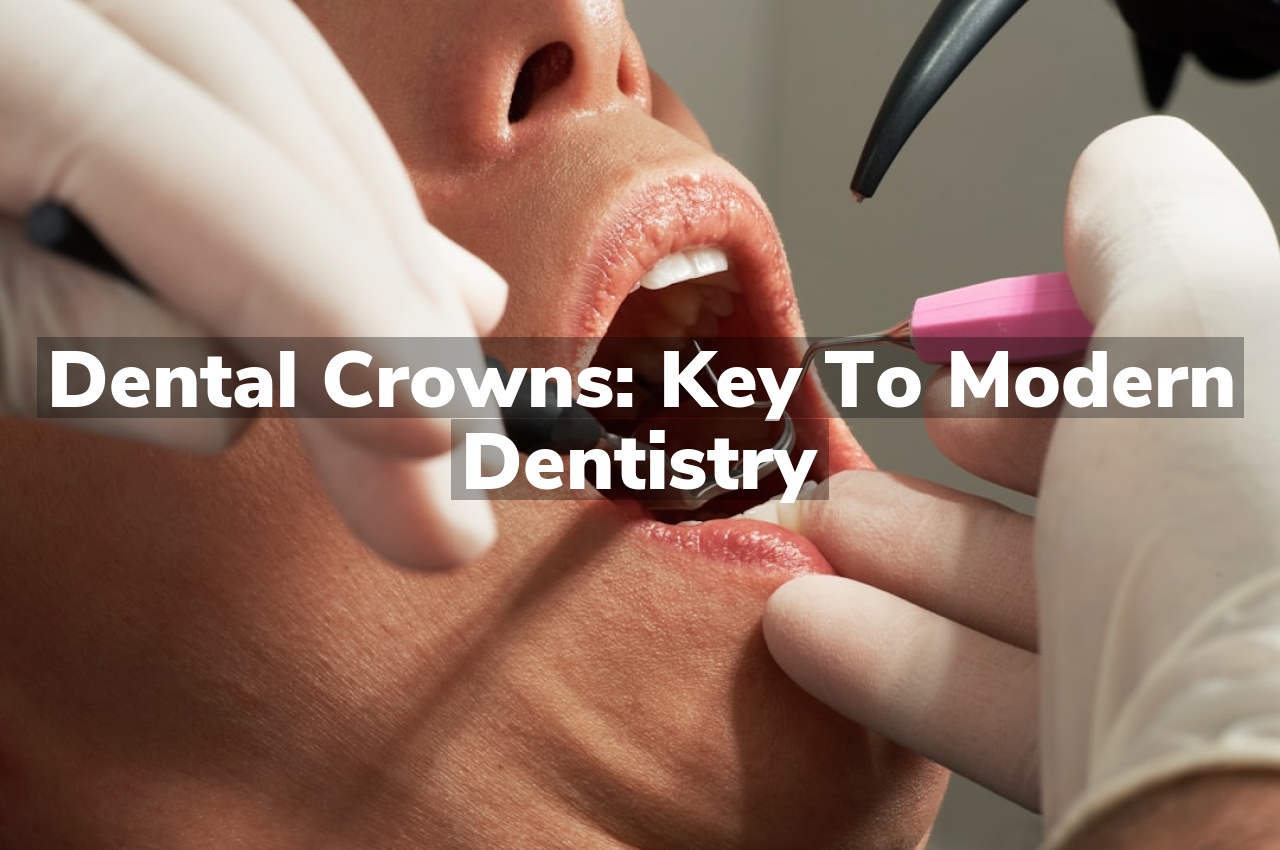Are you curious about how dental crowns have become a cornerstone in modern dentistry? These restorative pieces play a pivotal role in repairing and enhancing the durability of damaged teeth, ensuring that individuals can maintain both the function and aesthetics of their smiles with confidence.
Understanding Dental Crowns
Dental crowns stand as a cornerstone in modern dentistry, offering solutions for restoring damaged teeth and enhancing oral health. Essentially, they are custom-made caps placed over a tooth to cover it, restoring its shape, size, strength, and appearance. The process of getting a dental crown involves preparing the affected tooth, taking its impression, and then crafting a crown that perfectly fits over the tooth. This procedure not only helps in protecting a weakened tooth from further damage but also significantly improves the overall aesthetics of one’s smile.
The materials used in the fabrication of dental crowns vary, each offering distinct advantages in terms of durability, aesthetics, and cost-effectiveness. From metals to porcelain, ceramic, and resin, the choice of material depends on various factors including the location of the tooth, the patient’s bite, and aesthetic preferences. For those interested in exploring the different materials used in dental crowns, Key Materials for Dental Crowns Explained offers a comprehensive overview. Understanding these options is crucial for anyone considering dental crowns as it directly impacts the crown’s longevity, appearance, and overall satisfaction with the procedure.
Types of Dental Crowns
Dental crowns are a cornerstone in modern dentistry, offering solutions for restoring damaged teeth and enhancing the overall aesthetics of one’s smile. They come in various materials, each with its unique properties and applications. Porcelain or ceramic crowns are popular for their ability to match the natural color of teeth, making them an excellent choice for front tooth restoration. Metal crowns, including gold and other alloys, are prized for their durability and strength, making them suitable for back teeth that endure more force. Stainless steel crowns are often used as a temporary measure while a more permanent crown is being made. Additionally, there are crowns made from resin, which are less expensive but wear down over time and are more prone to fractures compared to other types.
Another option includes porcelain-fused-to-metal crowns, which offer a balance between strength and aesthetics. These crowns have a metal base covered with a porcelain layer, providing a natural appearance while ensuring durability. Each type of dental crown serves a specific purpose, and the choice depends on various factors including the tooth’s location, the patient’s dental history, aesthetic goals, and budget considerations. Understanding the different types of dental crowns can help individuals make informed decisions about their dental health. Restore your smile with affordable dental crowns.
The Process of Getting Crowns
The process of getting dental crowns is a fundamental aspect of modern dentistry, designed to restore the function and appearance of damaged teeth. Initially, a dentist evaluates the tooth’s condition to determine the suitability for a crown. Following this assessment, the tooth is prepared by reshaping its surface to ensure a proper fit for the crown. An impression of the tooth is then taken, which serves as a guide for creating the custom crown, typically in a dental laboratory. While the permanent crown is being made, a temporary crown may be placed to protect the tooth. Once the permanent crown is ready, it is carefully fitted and secured onto the tooth, completing the restoration process. This procedure not only enhances the tooth’s aesthetics but also strengthens and protects it from further damage.
Benefits of Dental Crowns
Dental crowns stand as a cornerstone in modern dentistry, offering a multitude of benefits that enhance both oral health and aesthetics. Primarily, they serve to protect damaged teeth from further deterioration, effectively restoring a tooth’s shape, size, and strength. This not only improves the functionality of one’s bite but also contributes to a more confident smile. Additionally, dental crowns are customized to match the color and appearance of natural teeth, ensuring a seamless integration into the dental arch. Their durability and compatibility make them a reliable solution for a wide range of dental issues, from repairing broken teeth to covering dental implants. By safeguarding the structural integrity of teeth, dental crowns play a pivotal role in maintaining overall oral health, preventing the need for more invasive procedures in the future. For those seeking professional dental care, Alliance Dental Care offers comprehensive services, ensuring your smile is in good hands with a Meridian Dentist.
Maintenance of Dental Crowns
Maintaining dental crowns is an essential aspect of modern dentistry, ensuring their longevity and functionality. Proper care of these dental restorations involves regular check-ups with a dental professional to monitor their condition and the health of the surrounding teeth and gums. It’s important for individuals with dental crowns to maintain good oral hygiene practices to support the overall health of their mouth. The role of dental crowns in restoring and enhancing the appearance of teeth has made them a pivotal component of dental treatments, highlighting the importance of their maintenance in preserving oral health.
Conclusion
Unlock the potential of modern dentistry for yourself; call us now at 208-646-9461 or read our reviews on Google Maps.




